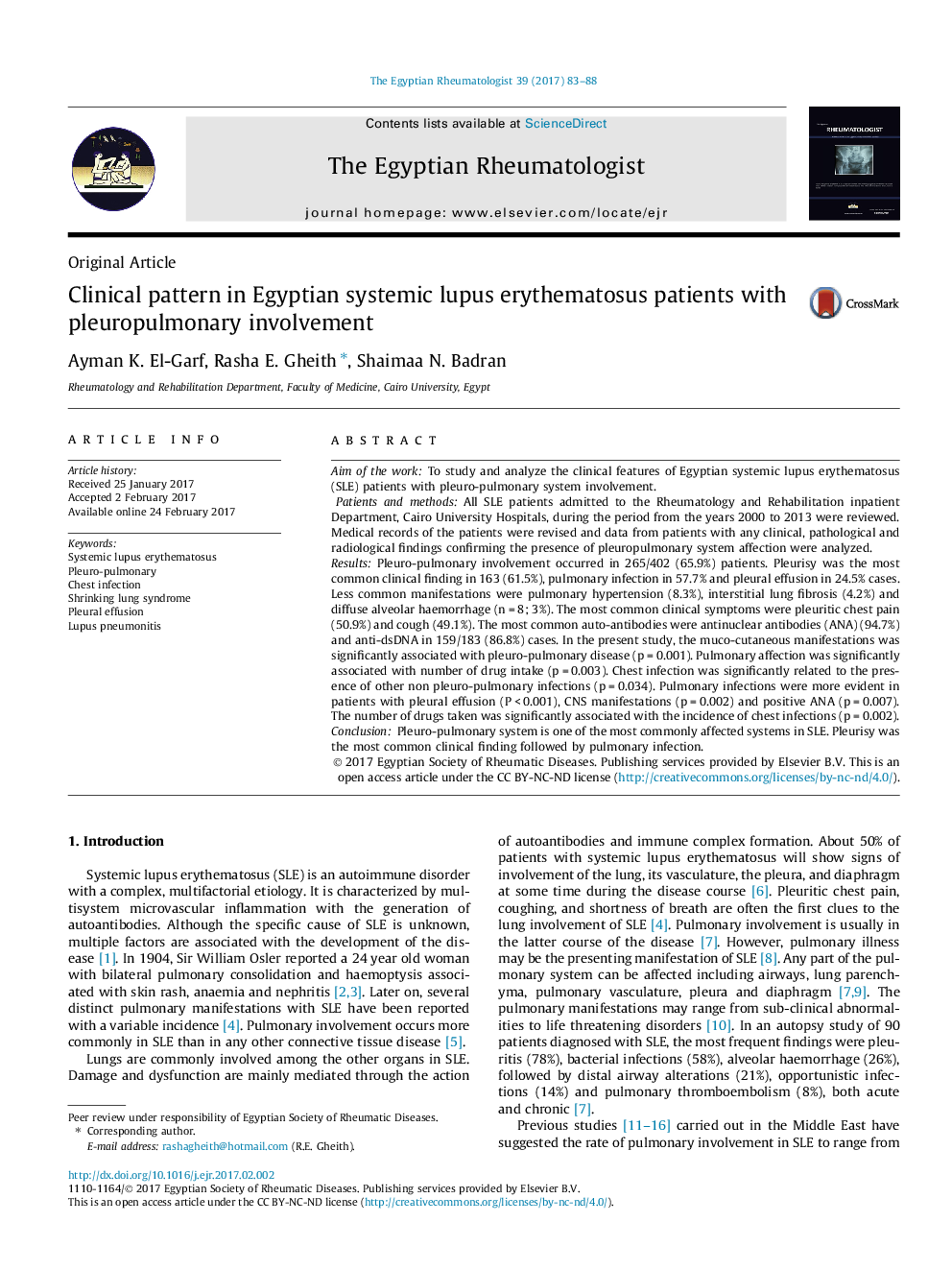| Article ID | Journal | Published Year | Pages | File Type |
|---|---|---|---|---|
| 5666121 | The Egyptian Rheumatologist | 2017 | 6 Pages |
Aim of the workTo study and analyze the clinical features of Egyptian systemic lupus erythematosus (SLE) patients with pleuro-pulmonary system involvement.Patients and methodsAll SLE patients admitted to the Rheumatology and Rehabilitation inpatient Department, Cairo University Hospitals, during the period from the years 2000 to 2013 were reviewed. Medical records of the patients were revised and data from patients with any clinical, pathological and radiological findings confirming the presence of pleuropulmonary system affection were analyzed.ResultsPleuro-pulmonary involvement occurred in 265/402 (65.9%) patients. Pleurisy was the most common clinical finding in 163 (61.5%), pulmonary infection in 57.7% and pleural effusion in 24.5% cases. Less common manifestations were pulmonary hypertension (8.3%), interstitial lung fibrosis (4.2%) and diffuse alveolar haemorrhage (n = 8; 3%). The most common clinical symptoms were pleuritic chest pain (50.9%) and cough (49.1%). The most common auto-antibodies were antinuclear antibodies (ANA) (94.7%) and anti-dsDNA in 159/183 (86.8%) cases. In the present study, the muco-cutaneous manifestations was significantly associated with pleuro-pulmonary disease (p = 0.001). Pulmonary affection was significantly associated with number of drug intake (p = 0.003). Chest infection was significantly related to the presence of other non pleuro-pulmonary infections (p = 0.034). Pulmonary infections were more evident in patients with pleural effusion (P < 0.001), CNS manifestations (p = 0.002) and positive ANA (p = 0.007). The number of drugs taken was significantly associated with the incidence of chest infections (p = 0.002).ConclusionPleuro-pulmonary system is one of the most commonly affected systems in SLE. Pleurisy was the most common clinical finding followed by pulmonary infection.
